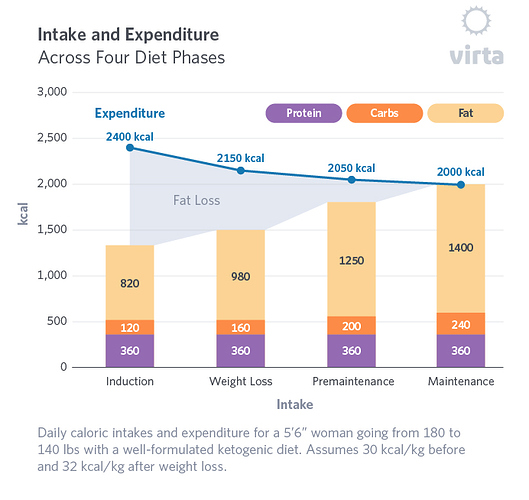I’m not suggesting there’s any malice, but in my experience, it isn’t just new folks who raise the issue. And the trouble is that this doesn’t require a magical explanation, nor does it require a mutually exclusive CICO vs LCHF battle.
The problem with CICO is not so much that it’s wrong, it’s that it’s an insufficient explanation. Nobody seriously disputes that losing fat means expending more energy than you take in. Nor do they dispute that gaining weight means eating more energy than you expend.
But Taubes has said many times that this is about as satisfying an explanation as saying that Bill Gates is rich because he spends less money than he generates. That is, it’s a totally unsatisfactory explanation.
CICO is the same, and we all know how this “explanation” has been manipulated by the processed “food” industry to claim that a calorie is a calorie, and all you have to do is eat a “balanced diet,” and a calorie from Coca Cola is the same as a calorie from broccoli. This is bullshit and we all know it.
The carbohydrate-insulin hypothesis is at least a partial explanation for why, to use Taubes’s metaphor, Bill Gates is rich. Meaning, beyond the facile explanation, what caused Bill Gates’s wealth? What causes a person to remain hungry after eating and to “overeat?”
What bothers me about this debate is that it’s so unnecessary. You do have to eat at a deficit to lose fat. While it might feel magical to us, there’s any number of things that might be happening when you eat a low carb diet: your insulin levels drop so you’re less hungry, you eat less, and your body fat reserves are unlocked and you start burning your own body fat.
(Perhaps also there’s an increase in your basal metabolic rate when you’re on a low carb diet, but from what I’ve seen of the experimental evidence, this effect appears to be relatively minor.)
This has been explained time and again by folks like Westman and Phinney. Phinney’s company, Virta Health, has this helpful graphic on its website, and if only we’d point people in its direction, I think a lot of misunderstandings on this forum could be averted:
In those initial phases when you’re burning loads of body fat, it does feel incredible – we’ve all felt it. You’re whooshing down in weight and it feels so easy. It feels magical. But no magical explanation is required, and we should go with the simplest explanation, using Ockham’s Razor, rather than talk about more convoluted explanations for how this process works.


 Not to me but it’s fine, I wouldn’t want spend unnecessarily much money and time and effort on food anyway.
Not to me but it’s fine, I wouldn’t want spend unnecessarily much money and time and effort on food anyway.